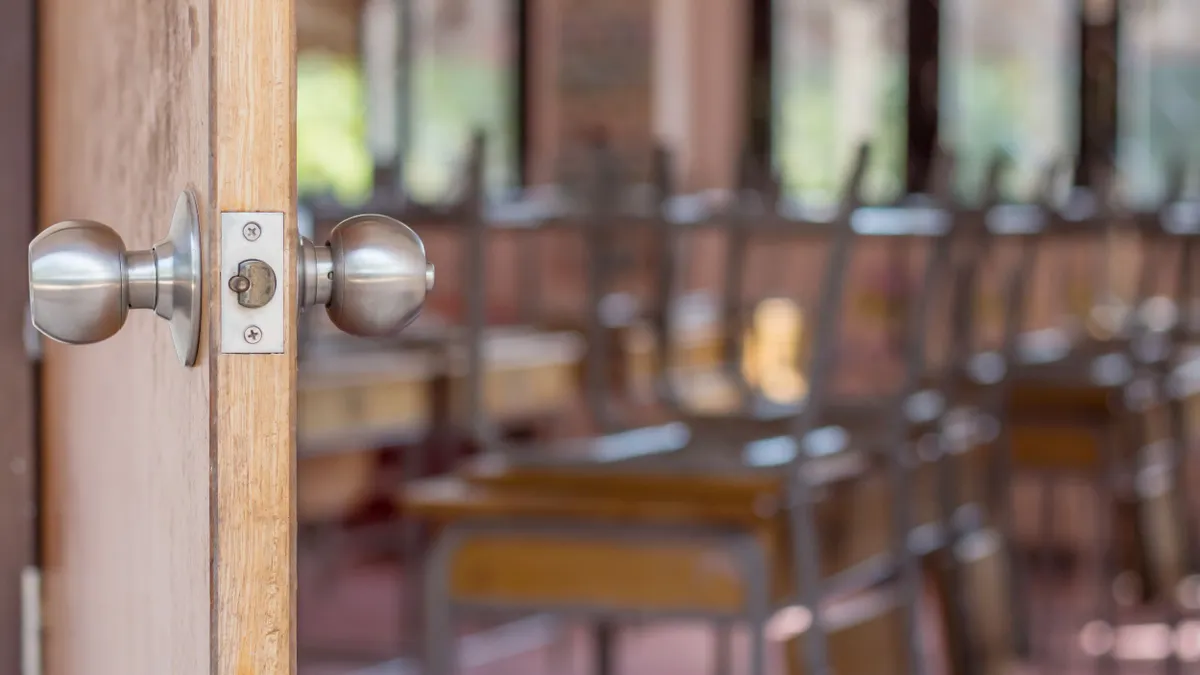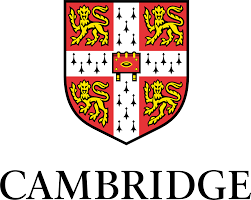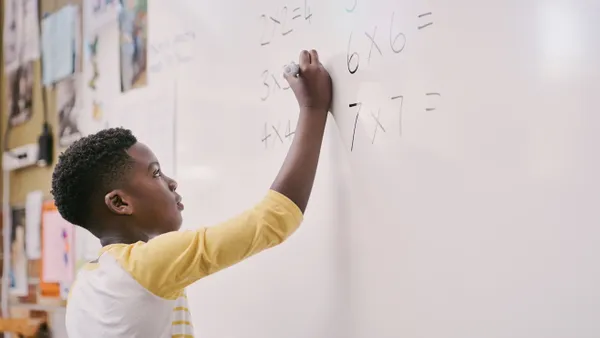COLUMBUS, OHIO — The invention of calculus allowed humans to measure all sorts of things they couldn’t before, such as the speed of a planet at a moment in time, electrical voltage or the marginal profit from selling a product.
More dubiously, calculus has also been used for years to measure the college-readiness of students.
Fewer than 5% of colleges explicitly require applicants to have completed a calculus course. But the vast majority of college admissions officers — 89% — say students who take calculus in high school are more likely to succeed in college, according to a 2024 survey by the National Association for College Admission Counseling and the nonprofit Just Equations, which focuses on the role of math in educational equity. Nearly half of admissions officers said that not taking calculus limits a student’s college options.
The potential problem with those assumptions revolve around both equity and pedagogy.
At a panel during NACAC’s annual conference last week, Just Equations National Policy Director Andrea McChristian pointed out that only 35% of high schools where over 75% of students are Black or Latinx offer calculus.
That leaves vast numbers of those students at under-resourced schools without access to math courses that college admissions officers use as a proxy for intellectual rigor and college readiness.
“That seems like a racial justice issue, that seems like an equity issue that we need to address,” McChristian said. She also pointed to disparities in lower-income students’ access to calculus courses and in first-generation students’ understanding of the importance college admissions staff place on such classes.
In terms of income, across schools where more than 50% of students qualify for free or reduced-price lunch, fewer than 10% of students completed a calculus course, according to the most recent federal data.
McChristian highlighted anonymous survey feedback from a high school counselor describing “an arms race” among students seeking ever higher-level math courses, where “the more everybody takes, the more everybody else takes.”
Meanwhile, other math courses that might be more pertinent to a high schooler’s career in college and beyond — particularly statistics and data classes — are often viewed by admissions staff as less important or rigorous, as the Just Equations and NACAC survey found.
But a 2025 study from the Thomas B. Fordham Institute looking at data from millions of Texas students over nearly 20 years found that high school calculus students were no more likely than those who took statistics to earn college degrees, though they were likelier to go to more selective colleges and pursue science and technical degrees. But among Advanced Placement courses, calculus students didn’t outearn their peers who took statistics.
Panelists last week questioned the value of calculus courses as preparation for college-level intellectual challenges, even in mathematics.
“Just because someone has taken a semester of calculus does not mean that they understand calculus at a level to be successful in college,” said Dusty Grundmeier, a mathematics professor at Ohio State University.
“We see a lot of students coming into a Calc I class that have taken a Calc I class in high school, and they were not performing that well.” Meanwhile, Grundmeier added, students without a high school calculus background can perform well in college-level calculus courses.
Andy Borst, vice provost for enrollment management at the University of Georgia, shared similar experience from the institutions where he’s worked.
He noted engineering faculty were frustrated with students taking calculus classes in high school before getting pummeled by their Calculus II or differential equations classes in college. “That’s setting back students’ interest in continuing in the STEM fields. They would much rather see students being exposed to calculus topics in high school and really having a firm understanding.”
The California Institute of Technology famously dropped its high school calculus requirement two years ago over concerns about access. At the NACAC panel, Ashley Pallie, dean of undergraduate admissions at Caltech, described how mathematics faculty were “incensed” to learn how many students didn’t have access to calculus courses in high school.
Since dropping the calculus and other high school class requirements, Caltech faculty have helped the university to create alternative pathways for applicants to demonstrate mastery of key mathematical topics and prepare for the Caltech’s difficult first-year curriculum, including through a collaboration with the free online course platform Khan Academy.
“We're enrolling students who have never taken these courses, and they're doing well on our campus,” Pallie said. “We're able to track them. There's not a problem. There's not a gap there for those students, because they're showcasing that level of mastery.”
She added: “A school like mine that really believes we're educating geniuses has to believe that geniuses can, in fact, teach themselves or find other pathways. And so there has to be other avenues for them to move forward.”
At a previous institution she worked at, Pallie described a similar reassessment of math requirements.
“We went in, met with the math faculty and we said, ‘What is it that you are actually required to have? What kind of student do you need to come in? What is the sequence that they need to have?’” Pallie recounted. “And they said they would take anybody, take them from zero to 100.”
As a math professor, Grundmeier affirmed that point.
“Math faculty are excited to work with students. We love math. We love talking to students at any level,” he said. “I'm not really looking for a student at a particular level. What I'm looking for is students who are excited to come in and learn some math, to be challenged to work on problems.”








 Dive Awards
Dive Awards
















